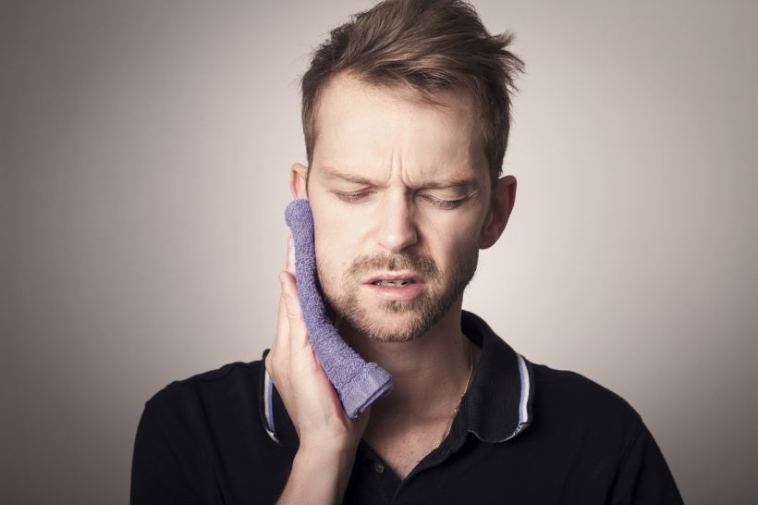- Like
- SHARE
- Digg
- Del
- Tumblr
- VKontakte
- Flattr
- Buffer
- Love This
- Save
- Odnoklassniki
- Meneame
- Blogger
- Amazon
- Yahoo Mail
- Gmail
- AOL
- Newsvine
- HackerNews
- Evernote
- MySpace
- Mail.ru
- Viadeo
- Line
- Comments
- Yummly
- SMS
- Viber
- Telegram
- JOIN
- Skype
- Facebook Messenger
- Kakao
- LiveJournal
- Yammer
- Edgar
- Fintel
- Mix
- Instapaper
- Copy Link
Introduction
CRPS is not a widely known or spread condition, yet more and more people suffer from it. As no cure can make CRPS symptoms disappear, people with this condition sometimes have to tackle everyday activities with excruciating pain.
Because of the pain, basic activities such as brushing teeth and flossing become almost impossible, so dental health is rapidly deteriorating among CRPS patients.
Dental workers are doing everything in their power to help people suffering from CRPS have healthy – teeth and gums. In fact there are now special CRPS treatments that can transform chronic pain recovery as we know it for patients suffering symptoms all over their bodies.
About CRPS
CRPS, which stands for Complex Regional Pain Syndrome, is a disease that can affect just about any organ or body part. People suffering from CRPS experience severe and long-lasting pain that can make completing simple everyday tasks very challenging.
Usually, the CRPS cases are triggered by an injury. However, the pain people experience with CRPS is much more persistent and severe than the pain from the injury.
Although the initial symptoms of this condition were recorded around 150 years ago, CRPS is still a poorly understood condition, and more research on it is necessary. What’s more, there’s no cure for CRPS, and patients can only use painkillers to relieve the symptoms.
Many CRPS patients complain about pain in the head, face, neck, and mouth area, so dentists must learn to recognize the symptoms related to CRPS. Failure to get numb, muscle dysfunction, inflammation, swelling, bite not feeling right, recurring pain, and pain spreading beyond the mouth area are just some of the most common symptoms of CRPS.
By recognizing CRPS in its initial stages, dentists can prevent CRPS from spreading to other body parts and organs. It also helps dentists understand the condition and numerous challenges they could be facing during dental procedures.
CRPS: Dental Health Challenges
CRPS can make dental hygiene and health complicated to maintain. Here are just some examples of why that is:
1. Pain
Pain is one of the most significant factors that make dental hygiene almost impossible. Namely, CRPS patients often experience pain in the head, face, neck, and mouth area, which doesn’t allow them to brush their teeth or floss properly. Because the mouth can become so sensitive, going in with a toothbrush or floss is something many people suffering from CRPS don’t want to do.
Moreover, the pain doesn’t have to affect the mouth area to make brushing and flossing challenging. For instance, individuals can also experience unbearable pain and loss of strength while brushing if CRPS symptoms affect their arms.
2. Habits
Some challenges are also closely connected to the habits people suffering from CRPS develop. Namely, once people start experiencing severe pain while completing a particular activity, they become more and more reluctant to do it with each passing day.
Therefore, people suffering from CRPS are prone to skipping brushing their teeth and flossing, as even such a simple activity brings them a lot of pain. Although it starts by not cleaning the teeth thoroughly, it quickly turns into a day or two of skipping dental hygiene. Finally, that evolves into poor dental hygiene habits that drastically deteriorate teeth and gum health.
3. Medication
Since there’s no developed cure for CRPS, people who become aware of this troublesome condition can try introducing medication to help relieve the pain and re-develop healthy habits concerning dental hygiene. Nevertheless, even medication comes with its disadvantages.
Painkillers and other medications intended to ease and relieve pain are the key factors responsible for poor dental health. These medications can affect the salivary glands, which start producing saliva with an overly thick consistency or simply don’t produce enough of it.
It can eventually result in dry mouth and accelerated tooth and gum decay since the crucial role of saliva is to protect these parts from diseases and infections.
4. Diet
Not many people stop to think about how our diet affects our dental health. Living with CRPS isn’t easy at all, and most individuals end up eating large amounts of comfort food to forget about the pain and medication and feel better about themselves. Even though this is a temporary solution, it can have a long-term impact.
Comfort food is typically high in fats and sugars. These types of food are the most harmful ones to our dental health. When you combine poor dietary choices with improper brushing and flossing habits, it’s only a matter of time before CRPS patients start seeing the first symptoms of dental health decay.
5. Fear
Finally, fear is yet another big part of dental hygiene and CRPS. Naturally, someone who experiences pain daily is very reluctant to expose themselves to additional pain. Furthermore, CRPS patients become more sensitive to pain, which is why they avoid visiting the dentist.
Even the thought of the dentist’s office, additional pain, and even local anesthesia is terrifying for many individuals living with CRPS, which is precisely why they avoid visiting their dentists.
CRPS: Possible Solutions
What can dentists do to make dentist appointments bearable for CRPS patients?
First and foremost, dentists need to educate themselves on this issue and learn everything they should know about CRPS. Even talking with the patients and asking questions about their condition is a great start. That way, dentists can come up with the best procedures and most optimal solutions for their patients.
Next, dentists need to complete any dental work with caution, sensitivity, and care. Even basic procedures can be extremely painful for CRPS patients, so listening to the clients and making them feel comfortable is crucial. More local anesthesia and shorter sessions with breaks might be precisely what your CRPS clients need.
Ultimately, dentists need to put additional effort when working with CRPS patients to make them more relaxed. Otherwise, these clients might go to a different dentist or, even worse, develop an even stronger fear of visiting a dentist’s office.
Final Thoughts
All in all, combining dental health and CRPS is equally challenging for the patients and the dentists. However, both sides need to put in as much effort as possible to make the best decisions regarding the patients’ teeth and gum health.
By learning about CRPS, dentists can become aware of the symptoms and issues, thus creating better appointment plans for their CRPS clients.


